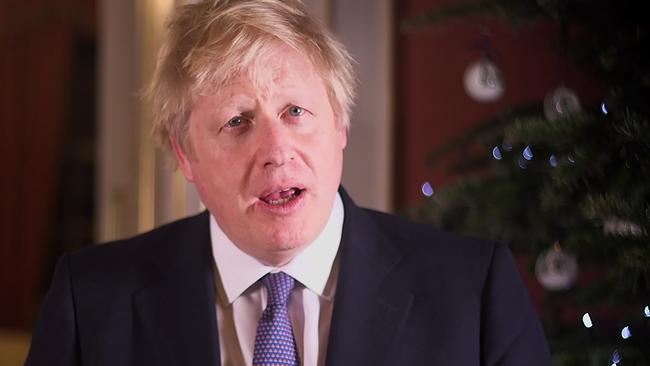Brussels targets City of London as it seeks upper hand in Brexit trade talks
Brussels will threaten to block the City of London’s access to European markets as post-Brexit trade talks open in the new year.

Brussels will threaten to block the City of London’s access to European markets in an opening salvo of post-Brexit trade talks in the new year.
EU chiefs will also warn Downing Street that they could put up barriers to data flows vital to British commerce.
In two weeks, European governments will begin internal talks with — according to a restricted document — “possible decisions on adequacy (personal data) and equivalence (financial services)”.
The two decisions will be central to the EU’s negotiating strategy because both will be crucial for the British economy in terms of data flows critical for smooth commerce and the future of financial services, which account for 7 per cent of Britain’s output.
EU negotiators will use the threat of unilaterally restricting or limiting access as leverage behind their demands that Britain must align with European regulations and meet a tight timetable for talks on the trade relationship after Brexit.
“These are both big levers for the EU,” a senior European diplomatic source said. “Data adequacy and equivalence are decisions under our direct control, decisions that can be reversed at any time and will be linked to progress in the wider negotiations.”
Under the “equivalence” regime, the European Commission will allow the City access to European markets on the condition that financial regulations mirror European rules. Access can be withdrawn or restricted on a sector-by-sector basis with 30 days’ notice. Previous EU equivalence decisions have been linked to broader political questions.
A restrictive or blocked data protection “adequacy” decision would harm British service industries, including finance and telecommunications, as well as jeopardise security and crime intelligence co-operation.
This year, the EU showed its willingness to use such decisions as an explicitly political lever to threaten Switzerland in trade treaty talks.
The strategy was, according to an internal commission document, directly linked to the forthcoming “decisive phase regarding Brexit”.
“As we’ve seen with the EU’s discussions with the Swiss, the decision as to whether to grant equivalence or adequacy rulings is not a purely technical one and is inherently political,” said Sam Lowe, senior research fellow at the Centre for European Reform.
“Whether the UK’s financial services regime is deemed equivalent to the EU’s, or data protection regime adequate in the eyes of the EU, will depend on the progress made in the broader talks on the future EU-UK trading relationship.”
The EU will link the two decisions, which could be structured to target particularly vulnerable service industry sectors, in an attempt to force Britain into a “level playing field” mechanism aligning the economy with EU single-market laws.
Leverage will also be exerted on the timetable of talks to pressure Britain to agree on a treaty allowing European access to British fishing waters by July next year and potentially to bounce the government into other sectoral deals beneficial to the EU.
“As it stands, it is not obvious what equivalent levers the UK has to pull. In its no-deal plans, the UK has already clarified it would provide a unilateral mechanism to allow for European banks to continue selling into the UK, and allow for data of UK citizens to be stored across the EU, for a period of time,” Mr Lowe said. “The UK’s relative openness, and smaller relative size, means it has fewer buttons to push; although there are certainly some prizes it can offer up, such as access to its fishing waters.”
British negotiators are expected to come under severe pressure because of Prime Minister Boris Johnson’s pledge not to extend the transitional period, keeping Britain inside the single market and Customs union, beyond the end of next year.
“The UK will need to be absolutely united otherwise the EU will play divide and rule,” said David Henig, UK director of the European Centre For International Political Economy.
“There will be a need to get into specifics for each sector but within an overall framework. This is the complexity we’ve denied with the short timescale.”
The Times



To join the conversation, please log in. Don't have an account? Register
Join the conversation, you are commenting as Logout